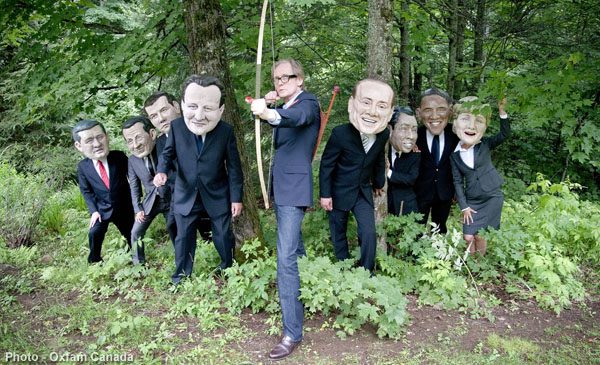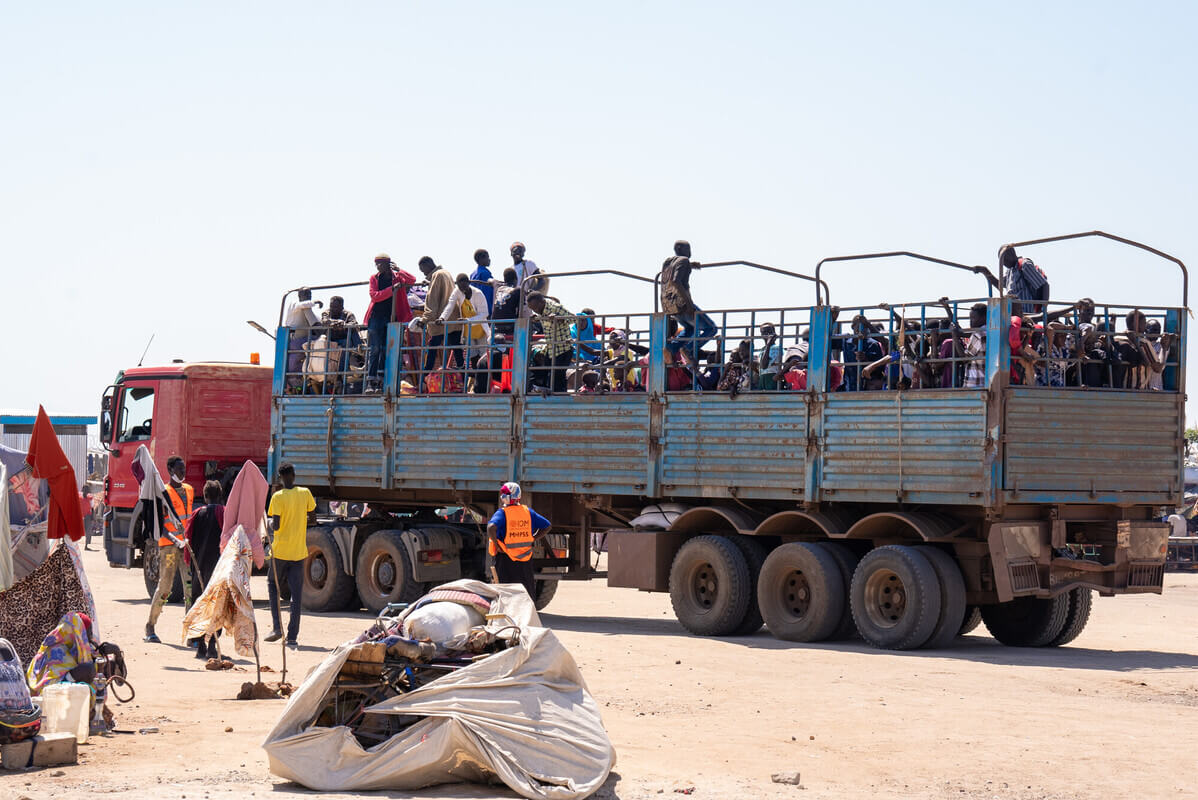After the G8 disgracefully dropped the ball on aid at what has been dubbed the ‘Summit of shame’, the G20 have missed their chance to score against poverty by failing to move towards a Robin Hood Tax on banks.
The Canadian prime minister managed to persuade countries like South Africa and India that this ‘taxing banks’ business’ would be an imposition on poor countries, when in fact the opposite is true. Big financial centers and the real casino banking is taking place in rich countries and this is where the money would come FROM. It should go TO fighting poverty and climate change, both home and abroad.
Let’s look at the context of these two Summits:
- Aid levels have been frozen despite the commitment to increase it to 0.7% (40 years later, and only five – Norway, the Netherlands, Denmark, Sweden and Luxembourg – have kept this promise. Australia still lags behind in raising aid levels to 0.7%)
- Climate change is hitting poor people now, Oxfam estimates that in Asia alone, about 1 billion people would face risks from reduced agricultural production, reduced water supplies or increased extreme weather events.
- The economic crisis, mostly created by financial speculation in rich countries, is also hitting poor countries harder where people are already on the frontline of poverty
- Almost 1,000 women die unnecessarily every day in childbirth and in complications related to pregnancy
- 1 billion people are still going to bed hungry every night.
These problems are interlinked, unnecessary and morally unjustifiable. Rich countries should stop hiding behind their creative accounting and face up to the fact that they need to deliver on their promises and start investing in the future. Now.
The deadly numbers game
- $1 billion+ is what the Canadian government has spent (to date) on three days of Summit security
- $20 billion – ‘missing’ so far from G8 promised aid (of $50bn promised, $25bn of which to Africa)
- $650 billion – what a Robin Hood Tax could raise annually
- $2 trillion – total amount given in aid in past 50 years
- $18 trillion – total amount spent in 2009 to bail out banks
Of course, it is not all a numbers game. However, money can literally mean life or death for people in poor countries, and money that has been delivered through past Summits has been proven to make a BIG difference. Two examples are debt relief for the most vulnerable countries, and the Global Fund to Fight AIDS, Tuberculosis and Malaria, which saves 3,000 lives a year.
As it stands, the G20 ‘agreed to disagree’ on whether or not everyone should implement some form of bank tax. Some will and some won’t. It is however fair to say that none of the options on the table so far has been extensive enough to qualify for what we would dub a true Robin Hood Tax – a tax that is big enough to raise $650 billion a year globally, and that will be used for ‘global goods’: fighting poverty domestically, cover the shortage of funds needed to achieve the Millennium Development Goals, climate change mitigation and adaptation in developing countries and fighting poverty on a global scale.
From our friends at Oxfam Canada.



